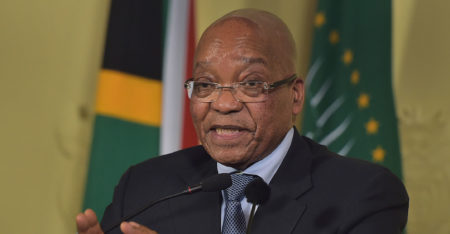
South Africa’s economy avoided a second recession in seven years as mining and factory output rebounded.
GDP rose an annualised 3,3% in the second quarter, compared with a 1,2% contraction the previous three months, the statistics office said in a report released on Tuesday in Pretoria. The median of 19 economist estimates compiled by Bloomberg was for 2,6% growth. The economy expanded 0,6% from a year ago.
Political turmoil, fuelled by reports that finance minister Pravin Gordhan may be arrested and statements by ANC officials that some of the the Reserve Bank’s powers should be reconsidered, could overshadow the news of the economy rebounding in the second quarter.
While factory output and retail sales expanded in the three months through June, the purchasing managers’ index fell below the neutral level of 50 last month, indicating future contraction in the manufacturing industry, and business confidence remains close to 13-year lows.
Recent political events “detract from confidence and it detract from investment and it does detract from consumption,” George Glynos, MD and chief economist at ETM Analytics in Johannesburg, said by phone. “People just tend to become a lot more conservative with their spending behaviour and their investment behaviour when they don’t have confidence in the future.”
Manufacturing, which accounts for about 13% of the economy, expanded at an annualised 8,1% and mining output increased by 11,8%, the statistics office said. Agriculture contracted by an annualised 0,8%, the sixth consecutive quarter of decline.
Low commodity prices, the worst drought in more than a century and weak export demand have weighed on Africa’s most industrialised economy and it will probably not expand at all this year, according to the central bank.
That complicates the task of the government seeking to reduce a 27% jobless rate and stave off a downgrade to junk by credit-rating companies who have said slow growth is a major risk for the nation’s creditworthiness.
Since being reappointed in December, Gordhan has led the government’s efforts to retain an investment-grade debt assessment by meeting with business and labour leaders and investors to seek measures to boost growth and confidence.
Gordhan returned to the post he held from 2009 until 2014 after President Jacob Zuma was forced to alter a decision to replace Nhlanhla Nene as finance minister with little-known lawmaker David van Rooyen.
There is a risk that the ANC could turn to a more populist approach to address rising voter dissatisfaction after its worst election performance since Nelson Mandela led the party to power in 1994, Fitch Ratings said after the 3 August Aug local government vote.
The rand has lost almost 6% against the dollar since the first reports on 22 August that Gordhan was summoned by police in relation to possible espionage charges for setting up a unit in the South African Revenue Service to spy on politicians when he headed the tax agency between 1999 and 2009.
The rand gained 1,2% to R14,21/US$ by 11.57am in Johannesburg. Yields on rand-denominated government bonds due in December 2026 fell by five basis points to 8,82%. — (c) 2016 Bloomberg LP
- Reported with assistance from Simbarashe Gumbo




